Many tourists know Swaziland as having Africa's first professionally-run casino, in which respect it has even stolen a march on South Africa. Others remember Swaziland because it produces fine artistic candles with such complex decorative designs you can't bear to light them. . . .
This scenic, politically stable mountain kingdom in the hinterland of Africa is a tourist magnet famed as the "Switzerland of Africa."
Swaziland lies in southern Africa, with a land area of 17,400 square kilometres and a population of roughly 750,000. Its main exports are sugar, timber, minerals and paper pulp; it relies on imports for most industrial goods. But tourism--the industry without smokestacks--has made this tiny kingdom famous. In 1968 it gained independence from Britain and became a constitutional monarchy. Sino-Swaziland relations were established on independence day, and for 20 years this friendship has steadily grown and prospered--at Swaziland's pace.
The ROC ambassador to Swaziland, Dominic T. H. Chang, cites an example. When the previous monarch died eight years ago after 61 years on the throne, Taiwan wanted to erect a memorial pavilion. This proposal was gladly accepted by Swaziland officials at the time, but now even though the site is ready and the expenditure has been approved by the ROC's government, the whole plan is still doing the rounds of Swaziland government departments.
As one diplomat privately confides, if you submit a document for processing and ask when it will be ready, the invariable reply of "Tomorrow! Tomorrow!" really means "next week."
Little wonder that when Prince Khuzul Wandle, chairman of the Swaziland Agricultural Produce Marketing Commission, visited the ROC and experienced the itinerary arranged for him in Taiwan he commented with feeling: "You really are highly efficient!"
In many African nations contact with the monarch is more important than swaying local public opinion if you want to strengthen mutual ties. In Swaziland especially, where the constitutional monarch enjoys high prestige, the growth of bilateral ties tends to be determined by the state of relations with the royal family.
Accordingly, ROC diplomats in Swaziland normally maintain close contacts with the Swazi royal family and regularly invite important officials to visit Taiwan. They also work hard on technical cooperation involving the ROC agricultural and handicraft missions. Taiwan always sends envoys to participate in Swaziland's major anniversary celebrations. The ROC also takes an active part in trade events initiated by the royal family or other foreign embassies.
Hard work brings results. Last August, King Mswati Ⅲ let it be known that he would attend a dinner at the home of Ambassador Chang, an informal affair without speeches or ties. This was an amazing precedent for a monarch who never dines with others and is never seen to eat or drink in public.
"Inviting the king is no simple matter." Close secrecy must be observed prior to the event, and Ambassador Chang and his wife, frequent entertainers, were somewhat at a loss: how to make arrangements without any announcements and keeping even the servants in the dark. A colleague had to borrow a red carpet from a large hotel specially for the occasion.
"This carpet is only used by the king, why do you want to borrow it?" They wanted to know.
On the day itself, Ambassador Chang received the king, the prime minister and five other principal guests indoors, while his wife entertained over 30 retainers outside. The evening was judged a perfect success.
When the ROC and Swaziland signed an extradition treaty last August, the ambassador held a dinner attended by five Swazi high court judges. Such occasions are rare in Swaziland.
In 1986 Taipei was one of the main stops on King Mswati Ⅲ's first visit abroad after his coronation. The Order of Brilliant Jade with Grand Cordon which was presented to him by the ROC on that occasion, made all the more impression for being the king's only decoration. The Swazi monarch's more frequent official and unofficial contacts with the ROC mission this year show that Sino-Swazi friendship is even more deeply rooted than before.
Official functions apart, Taiwan's agricultural mission, here in Swaziland to help develop the local farming sector, is another way of "trying our best" to promote Sino-Swazi relations.
It would probably be fair to describe the ROC's agricultural missions as behind the scenes workers in diplomacy. These hardy pioneers establish broad links with local farmers through tilling the soil and growing vegetables. They don't wear suits or ties, maintain a modest profile and look for all the world like honest farm lads.
Much respected by Swazi farmers, ROC agricultural mission head Ch'en Jung-hui is regarded as the best dressed member of the team because he so frequently attends meetings. He observes that Swaziland's exports consist mainly of farm produce, accounting for 63% of foreign exchange earnings. Yet the local people are still not self-sufficient in their staple food, maize. So the mission's work largely focusses on increasing Swaziland's output of maize and other cereal crops.
The year after Swaziland became independent, ten agricultural teams were set up by the present mission's predecessor under a Sino-Swazi agricultural cooperation agreement.
Today seven teams with 29 members are active in 12 farming areas. Their agenda includes experimental cultivation of crops such as maize, paddy rice and sorghum; soil and weather surveys to establish the suitability of crops; hydrological and topographical surveys to establish data for irrigation and drainage projects; and social surveys to learn more about the farming population's willingness to work and their technical level. Other aspects of their work include irrigation reconstruction training in agricultural machinery and maintenance, and assistance with developing capabilities in production technology and operational management.
Since the ROC agricultural mission arrived, corn production alone has risen between 300 and 400 percent.
In Swaziland cattle and goats are very valuable property. No household registration applies to people, but their cattle and goats must be registered and every birth and death recorded. In order to enhance their "national wealth" ROC technicians have been sent to royal farms to give guidance on breeding techniques.
Another useful partner for the embassy in promoting diplomatic relations is the ROC handicraft mission with its emphasis on patience and attention to detail. This was set up in 1973 to assist Swaziland develop its handicraft industry. Taiwan provided instructors and the necessary equipment, while Swaziland supplied the site, personnel and accommodation. Thus Swaziland's one and only national handicrafts training centre came into being.
As handicraft mission head Cheng Shan-liu points out, teaching handicraft techniques gives students a specialized skill. Great care is taken over selecting instructors, most of whom are graduates of National Taiwan Normal University and have teaching experience. Besides providing technical instruction they also train other teachers. Wood carving, stone carving, ceramics, tailoring and leather carving courses are taught, and during the past 18 years some 280 people have been trained as handicraft teachers, giving individuals better chances of employment and benefitting Swaziland's traditional arts.
Working environment and living conditions are two important factors that are often weighed up in the minds of foreign service staff stationed overseas. As far as Taiwan's diplomatic staff are concerned, their work is proceeding smoothly but the rest is "your own look-out." Just what is meant by this?
Ambassador Chang observes that the first step is to avoid falling ill. "Swaziland's medical facilities and level of health care leave much to be desired, and you have to go abroad for treatment unless it's just a simple cold." That means going to South Africa. In an emergency people often telephone to South Africa for a helicopter to airlift them to hospital.
ROC embassy secretary Ting Kan-ch'eng's wife once suffered a hemorrhage due to extrauterine pregnancy. The urgency of her condition discounted an airlift to South Africa, so she had to have a blood transfusion in Swaziland. But Africa is rife with AIDS, and the idea of having a local blood transfusion is enough to turn any Chinese pale. Fortunately agricultural mission members with the same blood group volunteered to give blood, and Mrs Ting's life was saved.
The second important thing to remember is to take great care when driving. Swaziland's roads are in poor repair, and on one major highway you frequently meet not only cars but cattle, goats and drunks. "That road must have one of the highest accident rates in the world," comments Secretary Ch'iu T'ai-ch'in with a wry grin. The poor state of the roads, which are badly lit, has led the diplomatic community to hold receptions at midday to avoid the risk and worry of driving after dark.
Material shortages are another inconvenience. Entertaining guests is obligatory for overseas diplomatic missions. In Taiwan's case this means providing Chinese food, but where are the ingredients to be obtained?
"Everything has to be supplied from abroad," says the wife of agricultural mission head Ch'en Jung-hui. By "abroad" she means South Africa and Taiwan. Each shopping trip involves spending your whole budget. "Living in the countryside, we naturally buy a lot whenever we get the chance to go into town," laughs Mrs Ting, just back from a shopping trip to Johannesburg. "Our husbands are always amazed at the sheer amount of shopping we bring home!"
Important items include foods such as soy sauce, mushrooms and spices, clothing, footwear, sheets, beds and sofas. When furnishing the embassy residence, Ambassador Chang's wife even travelled by van into South Africa to bring back suitable potted plants for display in her home.
Between trying to do a good job and making the best of life, the ROC diplomatic staff have gradually come to like this country. They have learned to come to terms with the inconveniences of living in Africa.
"You can't measure African countries by the standards of advanced nations or by our own standard of efficiency in Taiwan," says Ambassador Chang. Although most of Africa belongs to the Third World, each independent state has its own vote at the United Nations and is of equal importance as far as diplomatic work is concerned.
Upon taking office this July, ROC Foreign Minister Frederick Chien observed: "Our main diplomatic task at the moment is to maintain our friendship with those nations that have diplomatic relations with the ROC." People used to think we should conduct diplomatic relations with advanced countries, but this view is wrong. Actually we should cherish and value every friend we have.
If people at home can encourage our diplomats posted to distant corners of the world, their struggle to carry on in "hardship areas" will receive a much-needed boost!
[Picture Caption]
Swaziland owes its flourishing vegetable beds to behind the scenes work by the ROC agricultural mission.
The ROC handicrafts mission in Swaziland show local people techniques for creating handicraft items so as to increase their employment skills. The informal and primitive wood carvings shown here are the pride of their students.
Swaziland borders on Mozambique, and a number of Mozambican refugees have fled into Swaziland. In a humanitarian spirit, Ambassador Dominic T. H. Chang visits a refugee camp to present 5,000 kilos of rice on behalf of the ROC; Swazi officials on hand for the occasion express their appreciation.
On a visit by the King of Swaziland (front row, fourth from right) to the ROC agricultural mission in Swaziland, His Majesty was presented with a carpet by Council of Agriculture Chairman Yu Yu-hsien on behalf of the ROC government. (photo courtesy of Ambassador D.T .H. Chang)
In the two years Ambassador Chang has been posted to Swaziland he has achieved a great deal.
Swaziland is famous for its delightfully artistic wax candles.
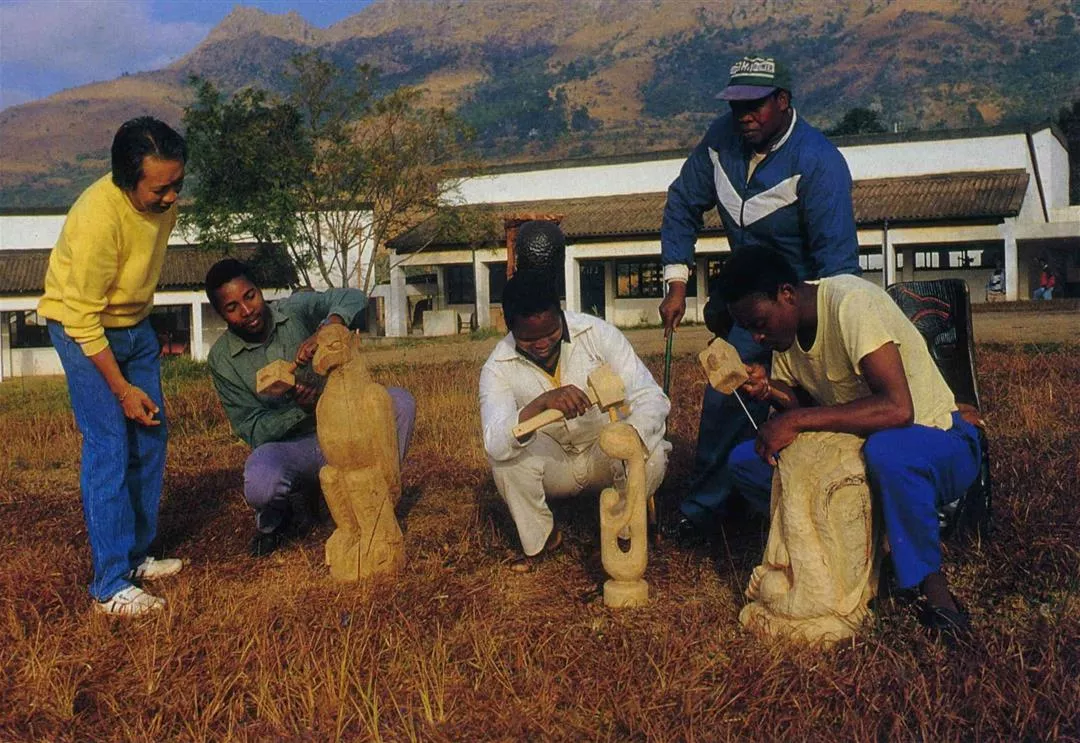
The ROC handicrafts mission in Swaziland show local people techniques for creating handicraft items so as to increase their employment skills. The informal and primitive wood carvings shown here are the pride of their students.
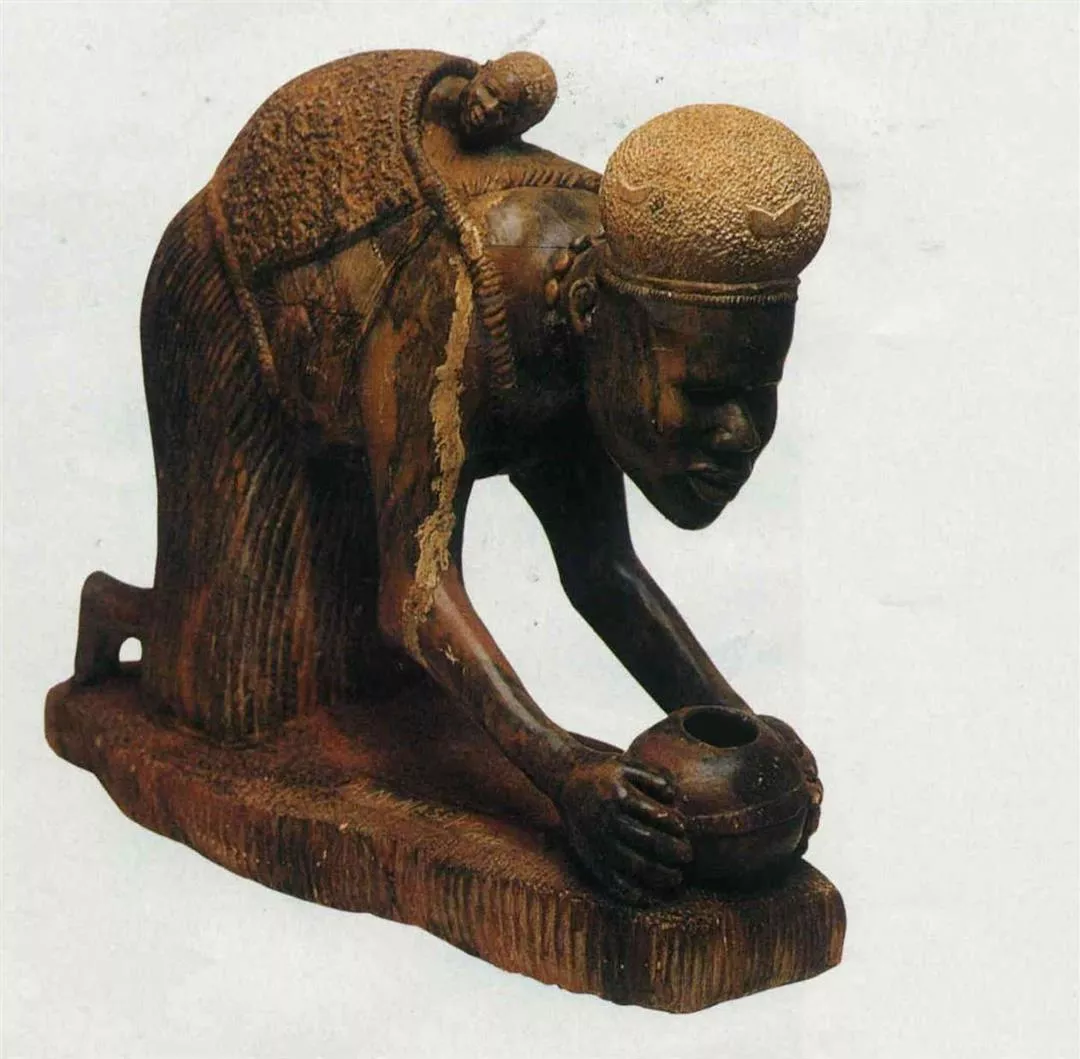
The ROC handicrafts mission in Swaziland show local people techniques for creating handicraft items so as to increase their employment skills. The informal and primitive wood carvings shown here are the pride of their students.
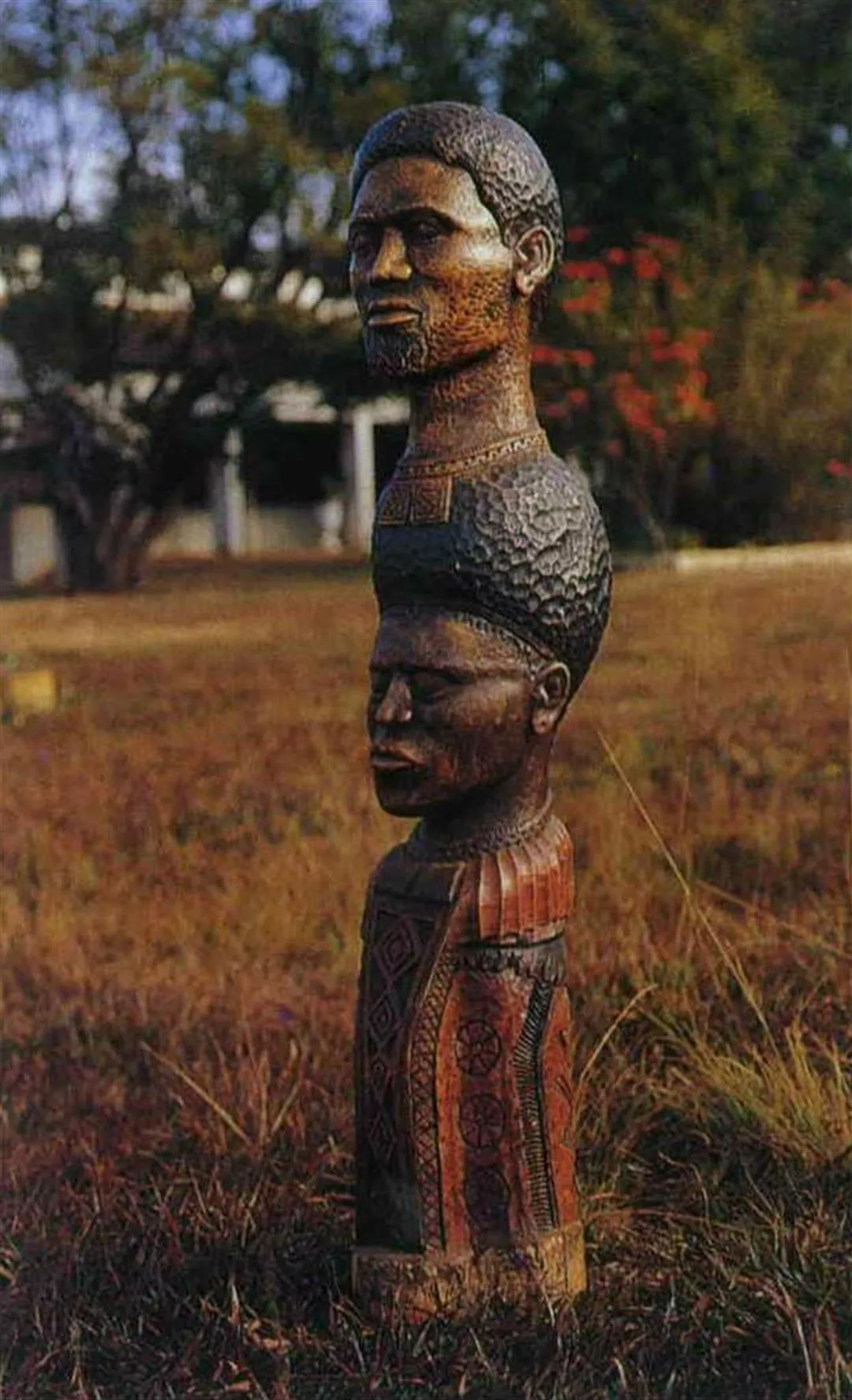
The ROC handicrafts mission in Swaziland show local people techniques for creating handicraft items so as to increase their employment skills. The informal and primitive wood carvings shown here are the pride of their students.
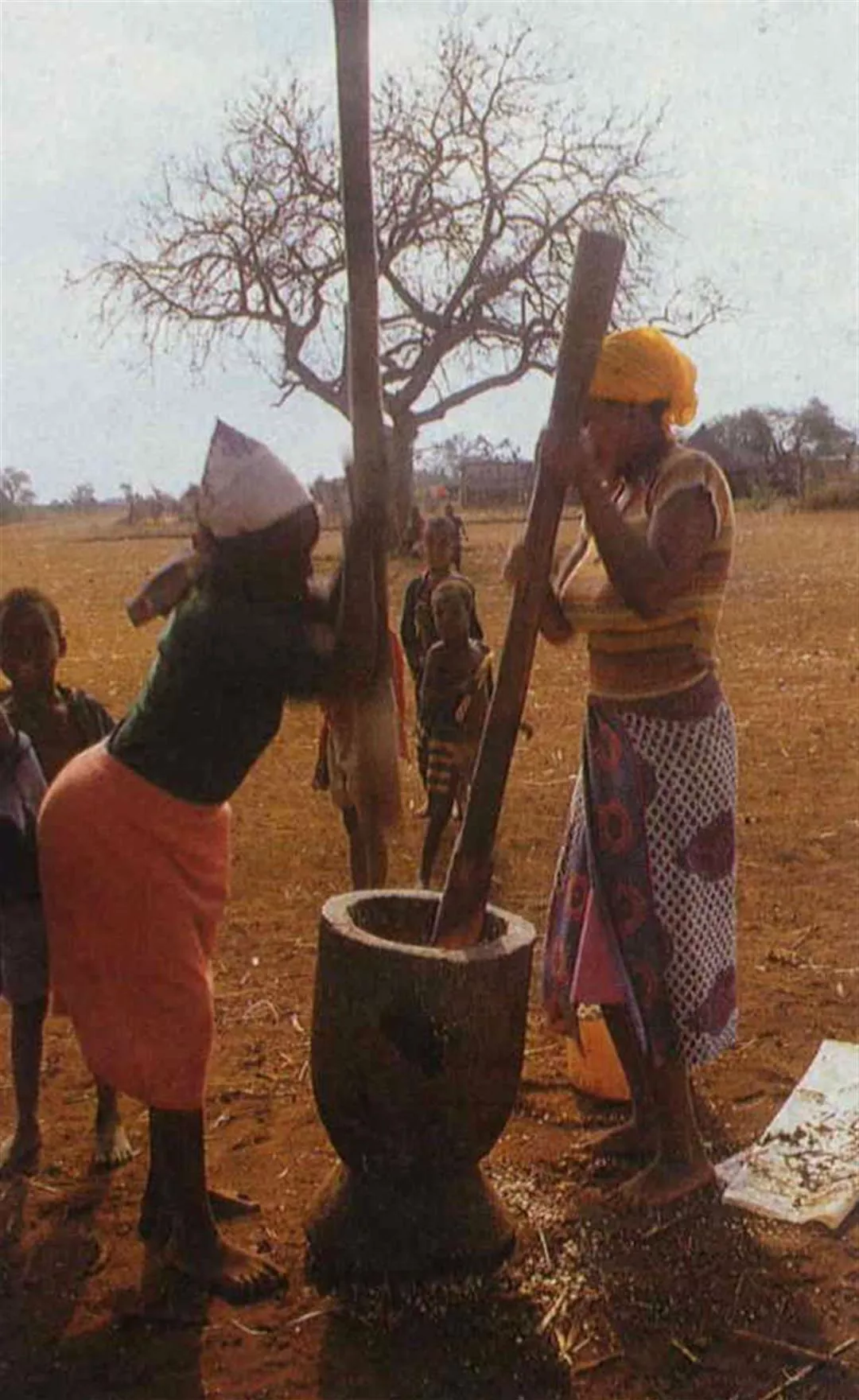
Swaziland borders on Mozambique, and a number of Mozambican refugees have fled into Swaziland. In a humanitarian spirit, Ambassador Dominic T. H. Chang visits a refugee camp to present 5,000 kilos of rice on behalf of the ROC; Swazi officials on hand for the occasion express their appreciation.
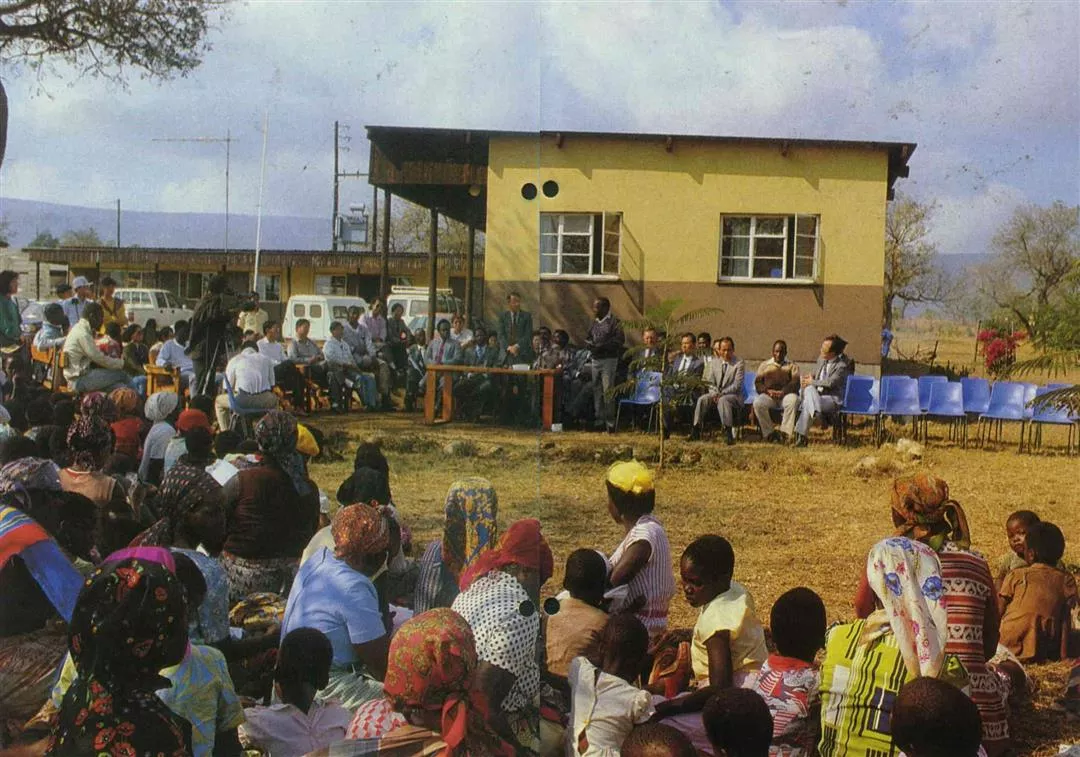
Swaziland borders on Mozambique, and a number of Mozambican refugees have fled into Swaziland. In a humanitarian spirit, Ambassador Dominic T. H. Chang visits a refugee camp to present 5,000 kilos of rice on behalf of the ROC; Swazi officials on hand for the occasion express their appreciation.
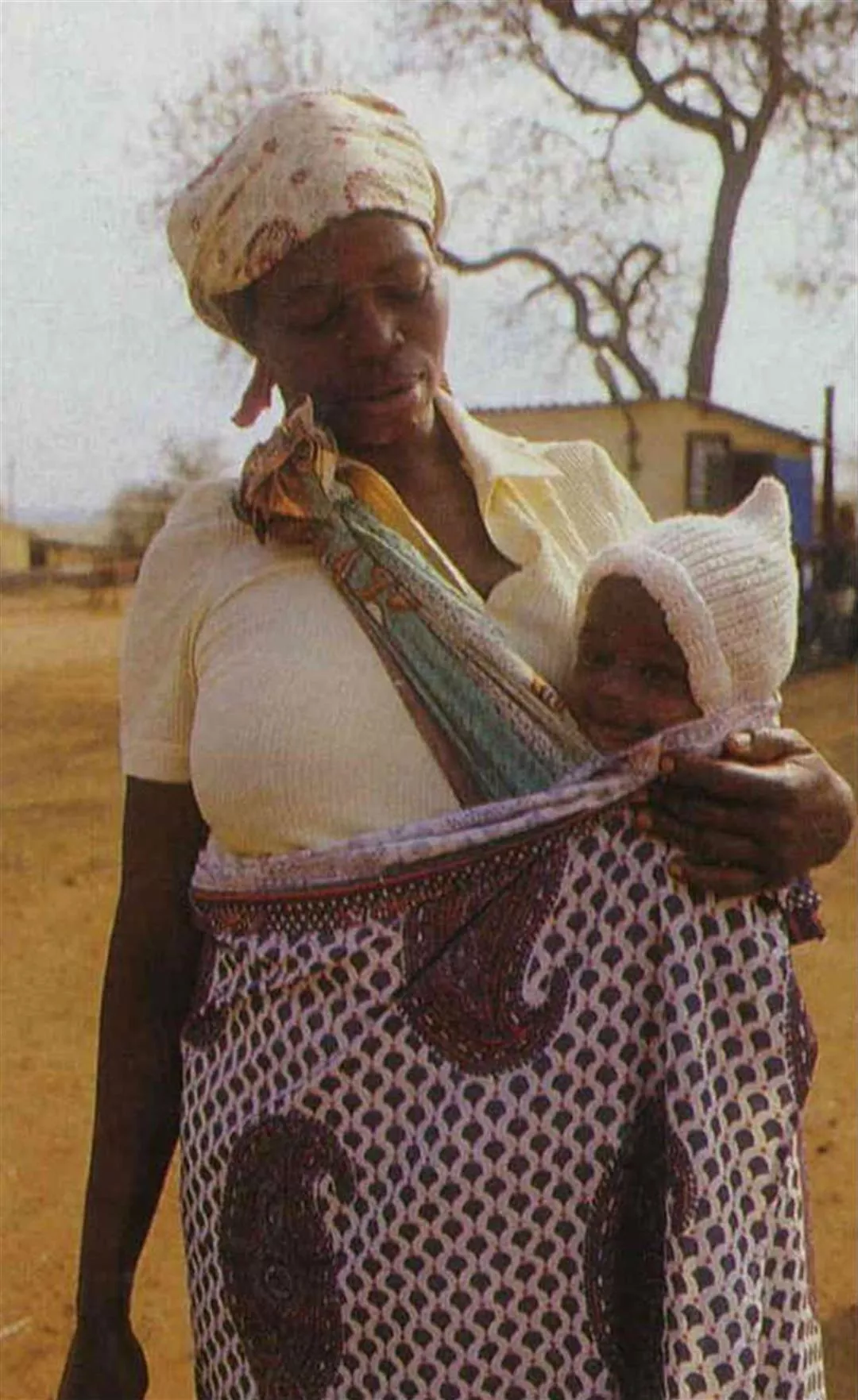
Swaziland borders on Mozambique, and a number of Mozambican refugees have fled into Swaziland. In a humanitarian spirit, Ambassador Dominic T. H. Chang visits a refugee camp to present 5,000 kilos of rice on behalf of the ROC; Swazi officials on hand for the occasion express their appreciation.
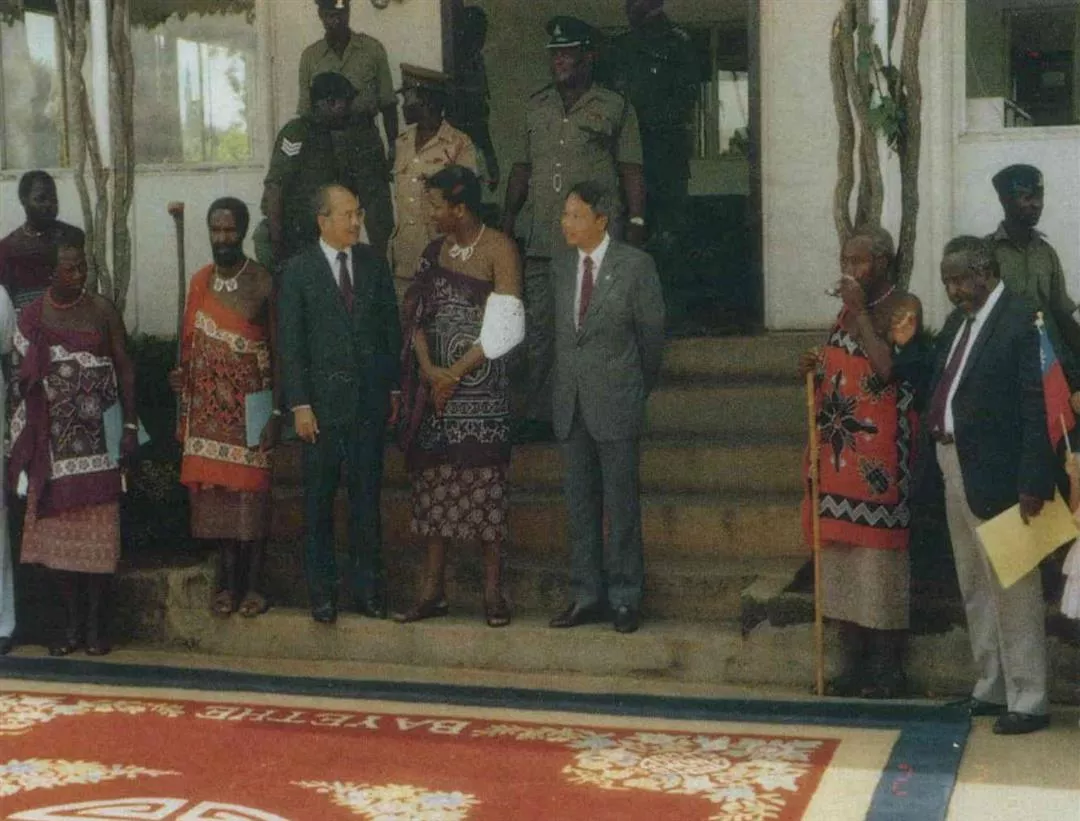
On a visit by the King of Swaziland (front row, fourth from right) to the ROC agricultural mission in Swaziland, His Majesty was presented with a carpet by Council of Agriculture Chairman Yu Yu-hsien on behalf of the ROC government. (photo courtesy of Ambassador D.T .H. Chang)
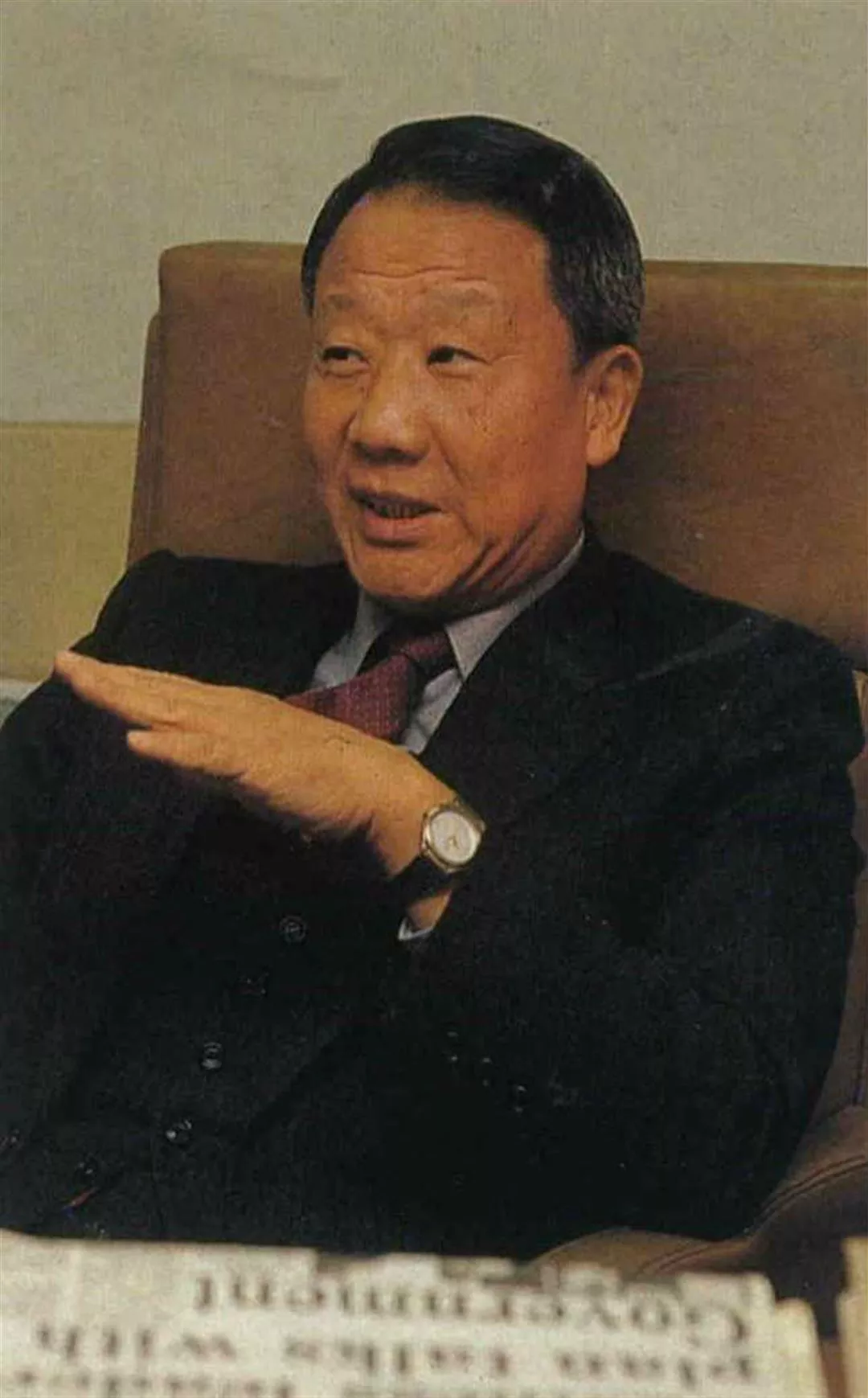
In the two years Ambassador Chang has been posted to Swaziland he has achieved a great deal.
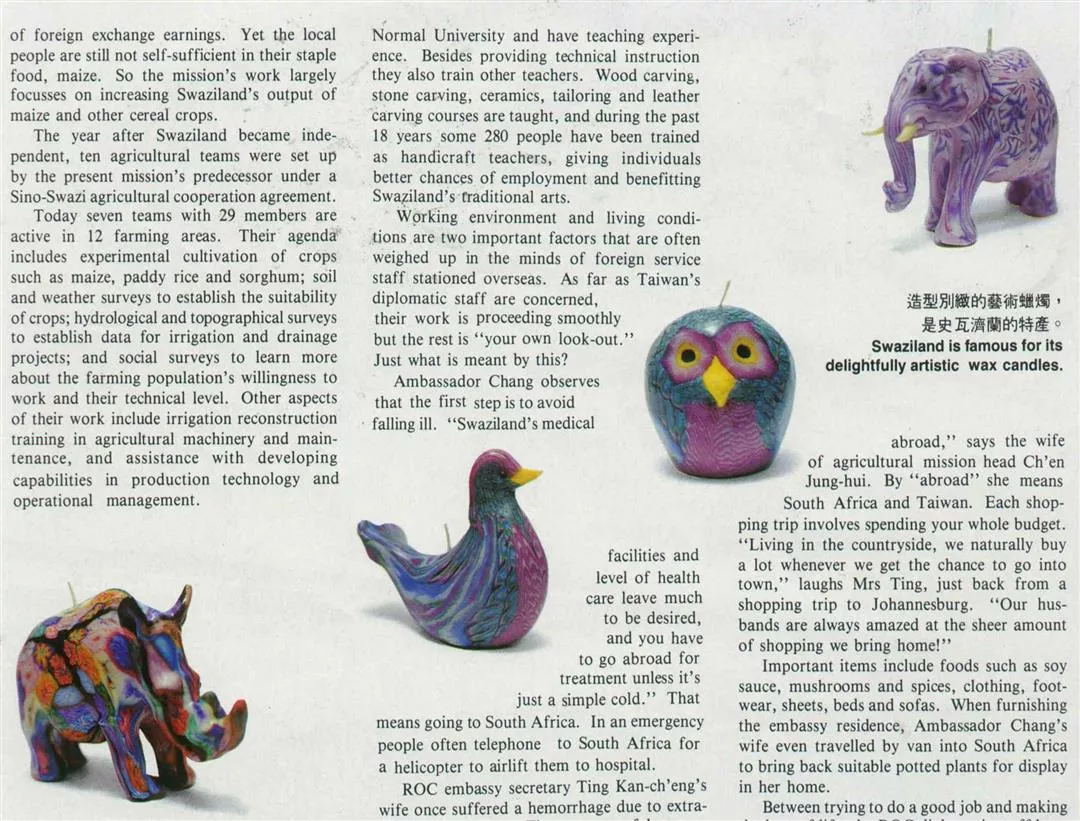
Swaziland is famous for its delightfully artistic wax candles.